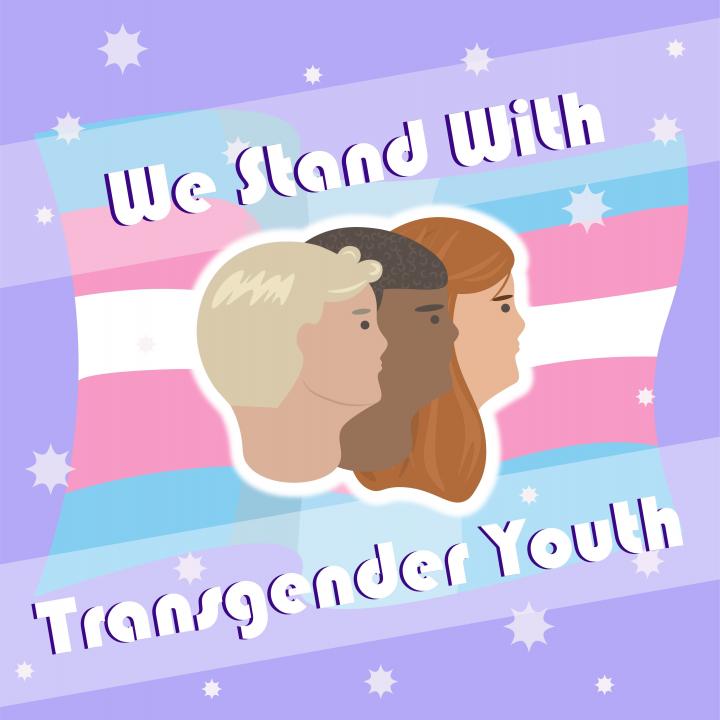On April 6, 2021, Arkansas became the first state to restrict gender-affirming care for transgender minors, essentially blocking any medical treatment that would assist in transitioning. Following an attempted veto of the bill, the state’s governor, Asa Hutchinson, correctly described it as a “vast government overreach.”
This bill’s passing was followed by public outrage and for good reason. The ban tremendously violates transgender rights and threatens the safety of transgender youth not only in Arkansas but in other states that could soon follow. It is an issue that needs immediate attention.
For years, the LGBTQ+ community has been fighting an uphill battle for equal rights. While there have been incredible victories, such as the famous Obergefell vs. Hodges Supreme Court case federally legalizing gay marriage, the fight and the conversation for equality is far from over, especially for those who identify as transgender.
This most recent bill has shown that transphobia in American politics will extend beyond the Trump administration that added fuel to it, growing as an even larger threat under President Biden’s leadership and the still extremely divided political parties.
As of March 12, 2021, 82 anti-transgender bills have been introduced in state legislatures, surpassing 2020’s total of 79 bills. Over half of the 50 states are currently considering some form of anti-transgender legislation. What makes this political action even more concerning is the harmful way in which the majority of it strategically targets minors, differing from previous attacks against the transgender community.
Under the Trump administration, much of the anti-transgender legislation, like the military ban, targeted transgender adults who had already come out. According to a Gallup survey, 1 in 6 people of Generation Z openly identify as LBGTQ+. If these new legislations are passed, individuals who have not yet come out or have not transitioned may have to stay closeted due to fear of discrimination and increasing political oppression.
When it comes to the recent legislation in Arkansas, lawmakers are justifying anti-transgender action by falsely claiming minors are too young to make decisions regarding their transition. If the power to make medical decisions is ripped from those who are transgender and placed in the state, the damage will be devastating.
Contrary to what lawmakers theorize about the damage of this medical access, The Trevor Project, an organization dedicated to supporting LBGTQ+ youth, found that for the more than half of transgender and non-binary youth that are suicidal, access to medical treatment can improve their mental health dramatically.
Besides these political tactics to target the most vulnerable in the transgender community, another issue arising with these bills is that state legislatures are not even representing their constituents’ beliefs.
In a recent study, 60 percent of Trump voters in swing states have said that transgender people should be able to live freely without government involvement, and a poll by NPR, PBS News Hour and Marist shows that at least two-thirds of Americans across a wide variety of ideological backgrounds are against anti-transgender laws.
In no way are state lawmakers representing the American people in their actions or protecting America’s transgender youth by taking away their choice and leaving it up to the state. If these types of hateful legislation continue to be passed, transphobia will only increase, encouraging people to discriminate and isolate their transgender peers and creating a space for bigotry and prejudice to thrive.
Although the full effects of the Arkansas law and similar bills in numerous other states are yet to be seen, they are likely to be extremely detrimental to transgender youth for years to come if they are allowed to take effect. In order to prevent future generations from growing up, learning and living in a country of bigotry, anti-transgender laws and bills must be stopped.
Transphobia, whether by governance or in everyday life, is unacceptable. To be part of the solution, call local and state officials, donate to organizations like the ACLU, be a place of support to your transgender peers and keep raising awareness.
If you or someone you know is feeling suicidal, UMBC has campus resources and people you can talk to. The Trans Support Group is a semester-long support group for students who identify as trans, bigender, non-binary, genderqueer, genderfluid, and/or those who are questioning their gender identity. You can also reach out at https://counseling.umbc.edu/, or you can call the National Suicide Prevention Line at 1-800-273-8255.

